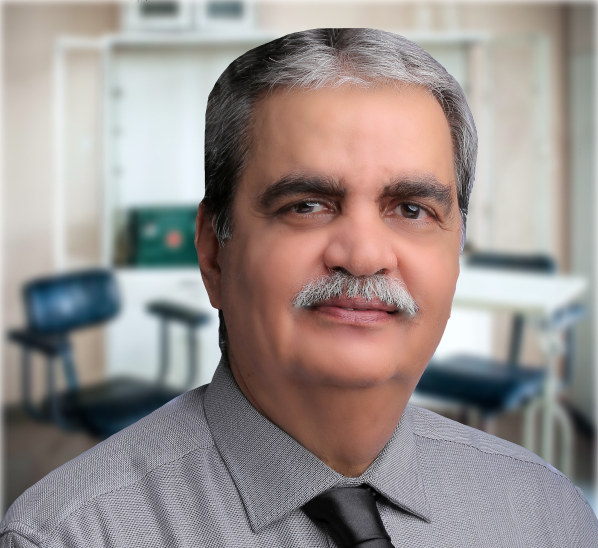Many of India\u2019s wandering street peoples\u2014typically dirty, disheveled and famished are actually mentally ill\u2014victimized not so much by poverty as by a problem society has not sufficiently understood and addressed: the problem of mental health. Restoring their health and dignity has been Dr. VATWANI\u2019s life mission.
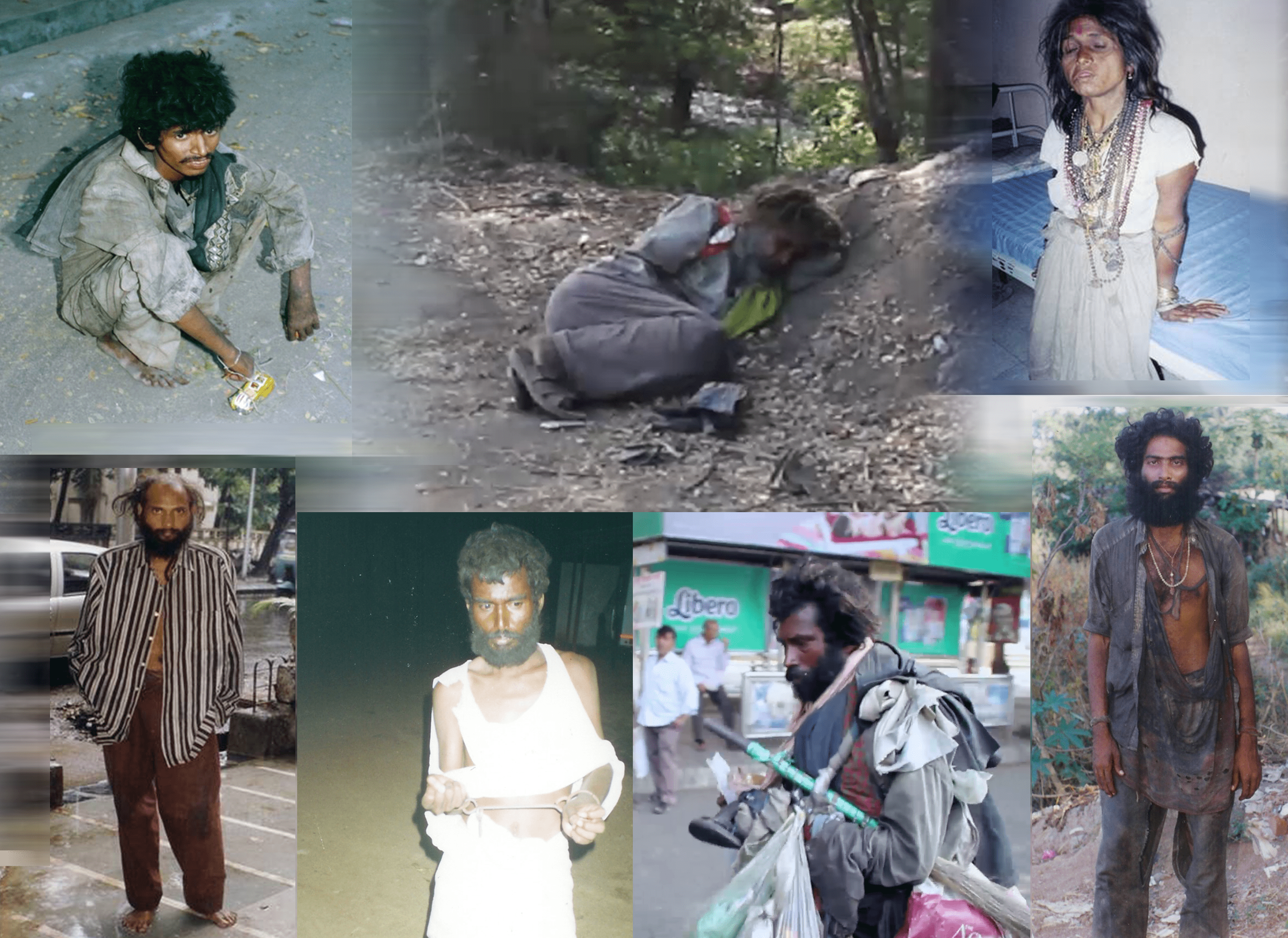
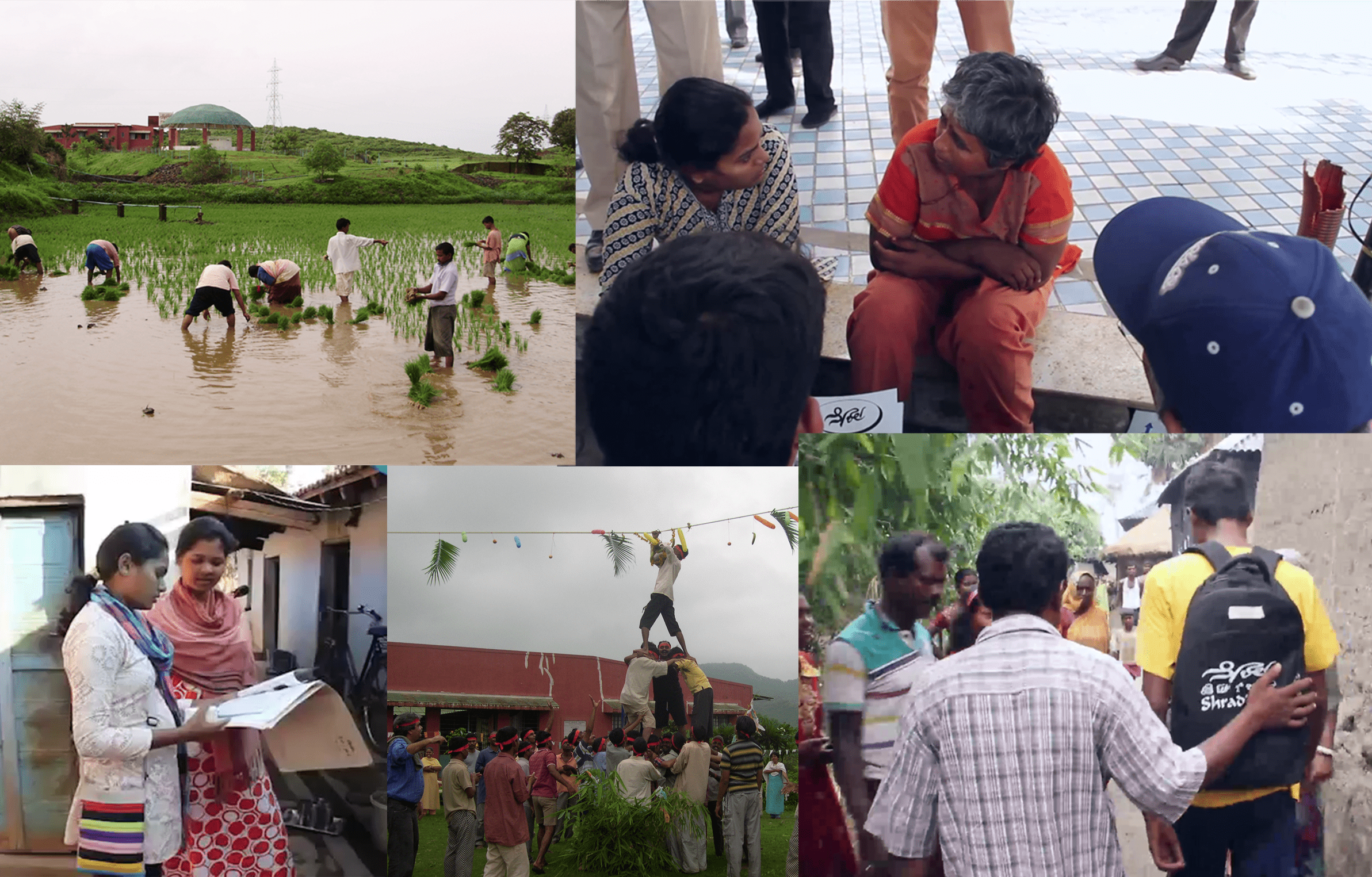
Responding to the neglected problem of mental illness, Dr. VATWANI\u2019s Shraddha Rehabilitation Foundation provides a holistic therapeutic program: (1) rescue and treatment of mentally-ill street persons, (2) reuniting patients with their families, and (3) promoting awareness of mental health in communities. More than 7,000 mentally-ill roadside destitute have benefitted from this program.
Shraddha workers patiently track down patients\u2019 families, arrange reunions, and accompany patients home, with a remarkable reunion success rate of 95%. VATWANI and his staff use such opportunities to build a supportive and enlightened understanding of mental health among the families and their communities.
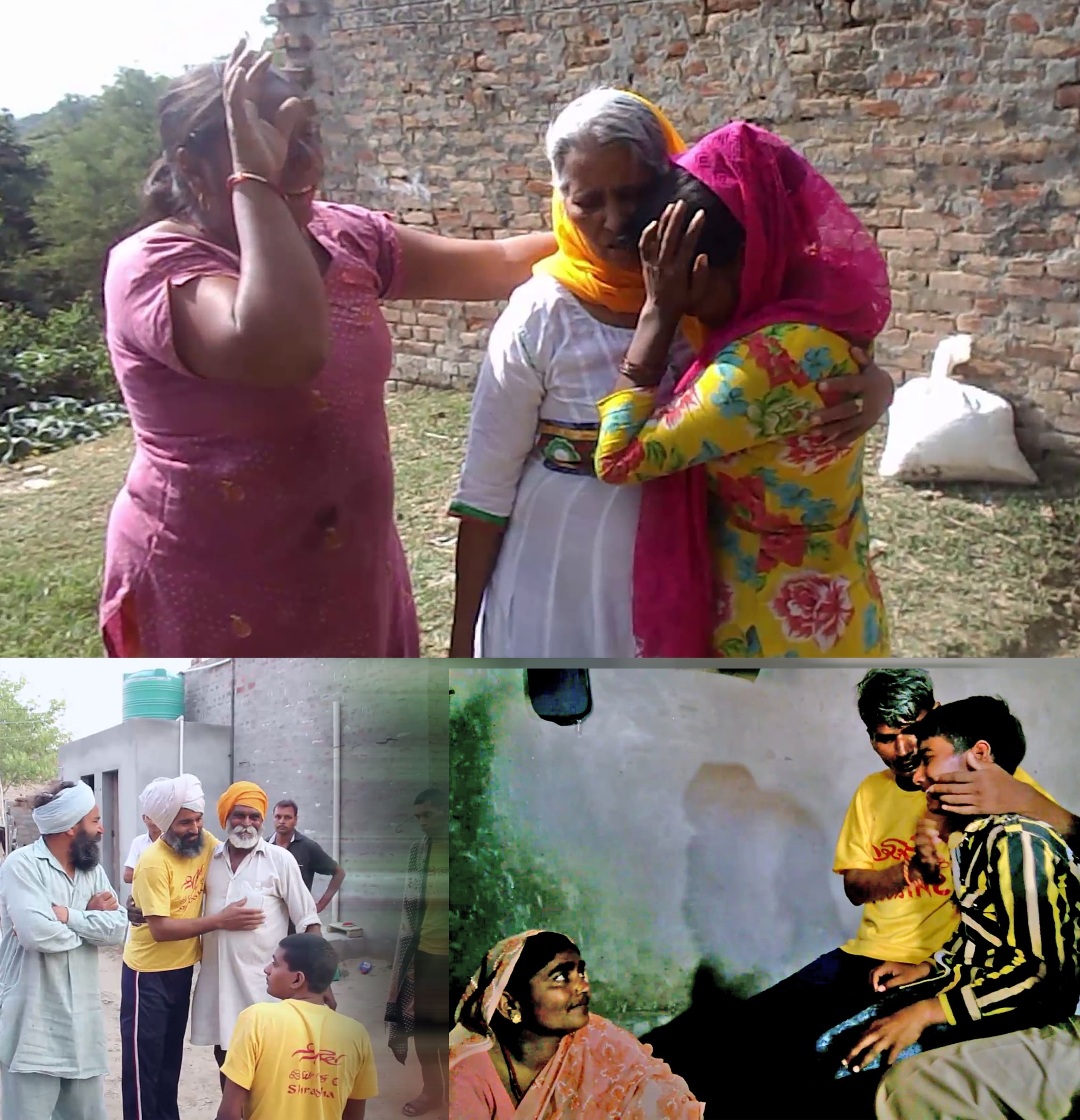
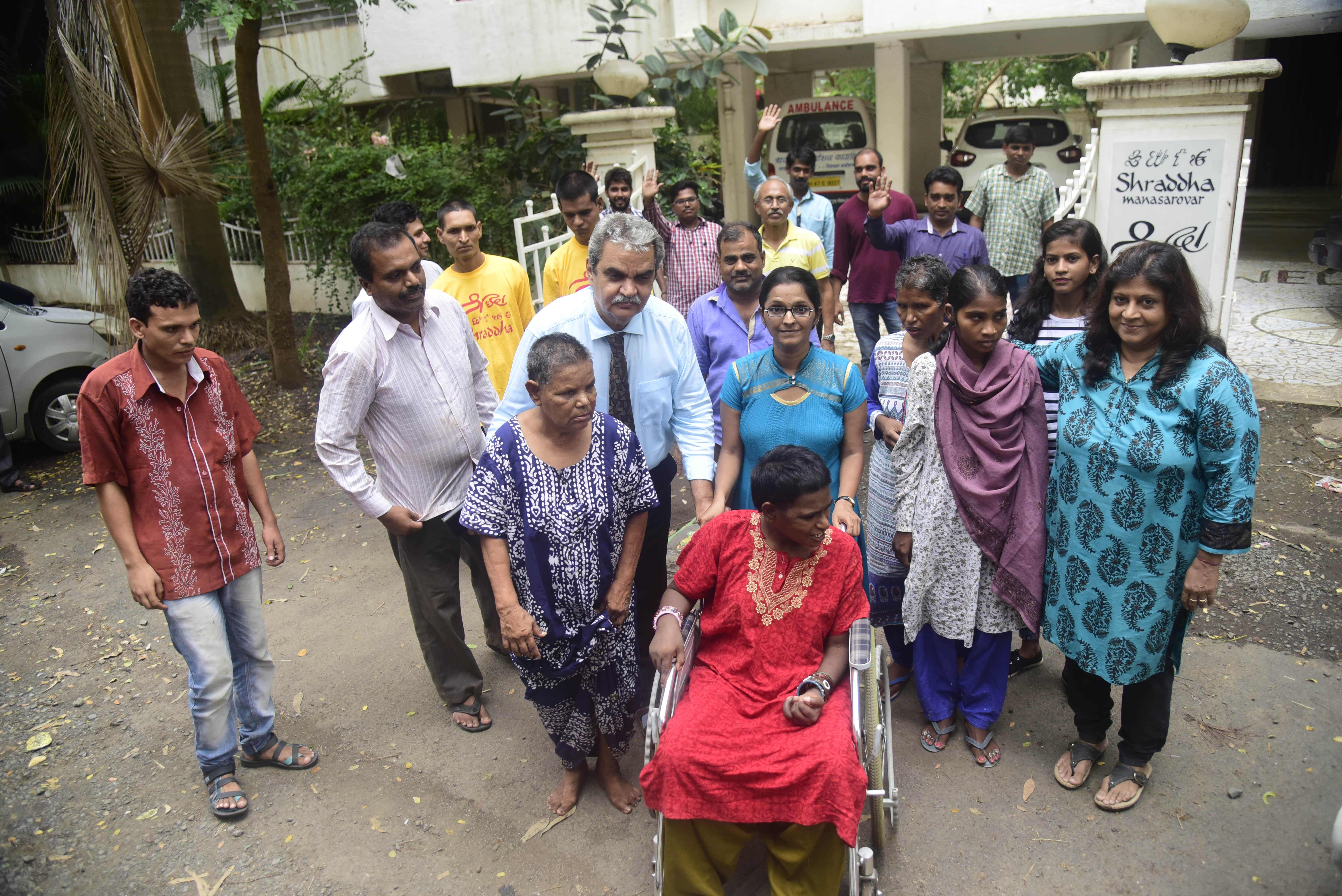
Despite the magnitude of the mental health problem and his own sense of limitation, Dr. VATWANI remains confident in his faith that in the end, \”Good work shall continue when there is inherent goodness in the work.\”
In few countries is the contrast between great wealth and extreme poverty as stark as in India. Of the latter, a popular image are its street people, dirty, disheveled, and famished, huddled on pavements, in train stations, bus stands, and public shrines. An estimated 400,000 of them are mentally ill, victimized not so much by poverty as by a problem society has not sufficiently understood and addressed: the problem of mental health. Stigmatized and feared, the response of many to these street persons is to pretend they do not exist.
One man chose not to pretend. Psychiatrist BHARAT VATWANI was out dining in a restaurant with his wife Smitha, also a psychiatrist, when they were appalled at the sight of a thin, unkempt man drinking water from a street canal. Taking time to talk to the man, a mentally-afflicted college graduate, they decided to bring him to their clinic to be washed and treated. This show of empathy was not entirely surprising. VATWANI knew what poverty was like. Losing his father when he was only 12 years old forced him and his brothers to take odd jobs, like peddling books door-to-door. Struggling through school as a self-supporting student, VATWANI successfully completed his medical studies in psychiatry at Grant Medical College and at G.S. Medical College & Hospital, both in Mumbai.
After their encounter with the man who drank water from a canal, Dr. VATWANI and his wife started an informal operation of bringing mentally-ill street persons to their private clinic for treatment. This eventually led to the establishment of Shraddha Rehabilitation Foundation in 1988, aimed at rescuing mentally-ill persons living on the streets; providing free shelter, food, and psychiatric treatment; and reuniting them with their families.
Starting with a two-room tenement that could take only three people at a time, Shraddha drew public attention when they rescued and treated a street person who turned out to be a respected lecturer at a Mumbai art school, who had inexplicably disappeared. Learning about what the VATWANIs had done, the school’s faculty and students organized a major art exhibition that drew 141 participating artists in India and abroad, and successfully raised US$22,357. Using this seed money, the VATWANIs bought a piece of property in Mumbai for a 20-bed facility that they opened in 1997; the unexpected donation inspired them to further expand their work with the help of private donors, volunteer professionals, and social workers. In 2006, they moved to a bigger 120-patient facility in Karjat outside Mumbai, which had five buildings on a 6.5-acre land. By then, they had strengthened their three-phase therapeutic program, consisting of the rescue and treatment of mentally-ill street persons, reuniting patients with their families, and promoting awareness of mental health in communities.
Their rescue work has been aided by the police, social workers, and referrals. Shraddha’s free custodial care and treatment ranges from personal hygiene, medical check-ups, psychiatric treatment, to appropriate medication—all done in the open, healing environment of the Karjat facility where patients can engage in simple farm activities and find solace in a multi-religious meditation center. The foundation tracks patients’ families, arranges reunions, and uses such opportunities to spread a supportive and enlightened understanding of mental health among the families and their communities. In a one-of-a-kind mission that began in 1988, VATWANI and the foundation have by now rescued, treated, and reintegrated into their families and communities more than 7,000 of India’s mentally-ill roadside destitute, with a remarkable reunion rate of 95%.
VATWANI’s painstaking, humane undertaking has had to contend with numerous challenges. A deeply spiritual person, the good doctor is often beset by doubts whether he has done enough, given the magnitude of the mental health problem in his country. Notwithstanding these self-doubts, he remains confident in his faith that in the end, “Good work shall continue when there is inherent goodness in the work.â€
In electing BHARAT VATWANI to receive the 2018 Ramon Magsaysay Award, the board of trustees recognizes his tremendous courage and healing compassion in embracing India’s mentally-afflicted destitute, and his steadfast and magnanimous dedication to the work of restoring and affirming the human dignity of even the most ostracized in our midst.
From the beginning of Time, the world has always been a conflict between between Right and Wrong, between Truth and Evil, between Justice and Injustice. Ultimately, community leaders like Mahatma Gandhi, Mother Teresa, Nelson Mandela, Vinoba Bhave, Martin Luther King, The Dalai Lama, Baba & Prakash Amte, irrespective of their particular sphere of activities, support, and are torch bearers of the former. And have ended up becoming emissaries of Truth itself. Often reaching far beyond where the stone thrown into the pond of Life falls, are the implications of the ripples that the stone hitting the water has caused. And the Ramon Magsaysay Award, by recognizing individuals from Asia, has further added to the distance of the ripples created by Asian social Emissaries. It is not individual causes that we as Awardees represent, it is the hope of a collective good, a hope that Truth and God shall prevail within Mankind. And that ultimately we shall join in eternal bonding to the greater Cosmos of a God’s Creation beyond.
Despite this, the cause of the wandering mentally ill roadside destitute which our NGO Shraddha Rehabilitation Foundation espouses, does deserve its place under the sun, as an unspoken tragedy that has befallen mankind. This is because the mental illness causing the destitute to end up on the roads, is not of his/her own making. The wandering mentally ill are shunned, rejected and denied. They brave the chilling winters, the searing summers and the torrential rains for months, years, often decades on end. And continue to be shunned, rejected and denied. To the point of non-existence. And to correct this Injustice, at least in India, was born Shraddha Rehabilitation Foundation.
We had naively thought during its inception, that in the span of our lifetimes, a lot would change for India’s wandering mentally ill. But today, having read a lot of literature on the psyche of social workers, both the famous and the not-so-famous, the heard and the not much written about, I am well aware that the laying down of one lifetime may well be inadequate for a cause. Lincoln had his bouts of deep soul-searching depression. But the cause which he fought for viz racial discrimination has not been sorted out in its entirety, till date. Nobel Laureate Tagore wrote ‘Into that Heaven of Freedom, my Father, let my Country awake..’ 75 years on, his Country is yet to realize his vision. Lincoln and Tagore and those millions of silent strugglers all over the world, who have partaken in ideological wars over innumerable years, have taught us that Change is a Slow Process. However strong and deep rooted be the emotions, however piercing the inner outcry against social disparity or injustice, howsoever passionate the associated intrinsic desire for change, the wheels of the Gods move slowly, albeit very slowly.
And to silently continue on your chosen path, with your nose to the grind, like the faceless, nameless, anonymous soldier carrying the half-hoisted flag of Truth on his shoulder, becomes at some point of time, the wheel of silent revolution in your own silent unwritten destiny. Leading one to understand the Gospel Philosophy of the Sages of Yore that truth is Truth only when it has the capacity to stretch beyond the limits of all endurance, light is Light only when it has the capacity to pierce the darkness. I end this outpouring with a few lines from one of my earliest poems –
If Life,
could be founded on hope,
And Wisdom,
on mere understanding,
Then the horizons would be mine,
The rainbows notwithstanding,
But I had nothing,
Just this pen, paper and a few words,
And my feelings for you,
From the beginning of time….

